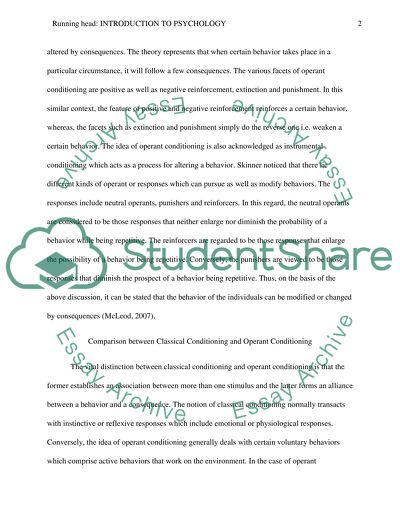Cite this document
(“Introduction to classical and operant conditioning Essay”, n.d.)
Retrieved from https://studentshare.org/psychology/1458059-introduction-to-classical-and-operant-conditioning
Retrieved from https://studentshare.org/psychology/1458059-introduction-to-classical-and-operant-conditioning
(Introduction to Classical and Operant Conditioning Essay)
https://studentshare.org/psychology/1458059-introduction-to-classical-and-operant-conditioning.
https://studentshare.org/psychology/1458059-introduction-to-classical-and-operant-conditioning.
“Introduction to Classical and Operant Conditioning Essay”, n.d. https://studentshare.org/psychology/1458059-introduction-to-classical-and-operant-conditioning.


